
Ranger tips: Murray River National Park
Get insider tips on the best places to visit and ‘must do’ activities from park ranger Glenn Chisolm.
Located about a 3‑hour drive east of Adelaide, Murray River National Park provides ample opportunity for a variety of recreational activities such as walking, canoeing, bird watching and bush camping.
The park is spread over three separate locations along the river, stretching from Loxton to Renmark, so there’s plenty to explore.
Local park ranger Glenn Chisolm has spent the past 8 years working in the park, so he knows it like the back of his hand.
We asked him for his insider tips – here’s what he had to say:
What is your favourite campsite and why?
There’s so many great spots along the river and Katarapko Creek that it’s hard to choose. My favourite would be campsite 38 in the Katarapko Section of the park, although it is only accessible to four-wheel-drive vehicles.
The campsite is huge and is suitable for tents and camper trailers. It’s great if you want to go with a group of friends as you can have up to six vehicles on the site.
It has direct access to Katarapko Creek, which is perfect for launching canoes and fishing, and the tall river red gums offer good shade. There’s also toilet facilities located just a short walk away.
Top tip: Campsites in Murray River National Park must be booked prior to arrival. Book online or visit one of our booking agents to reserve your campsite.
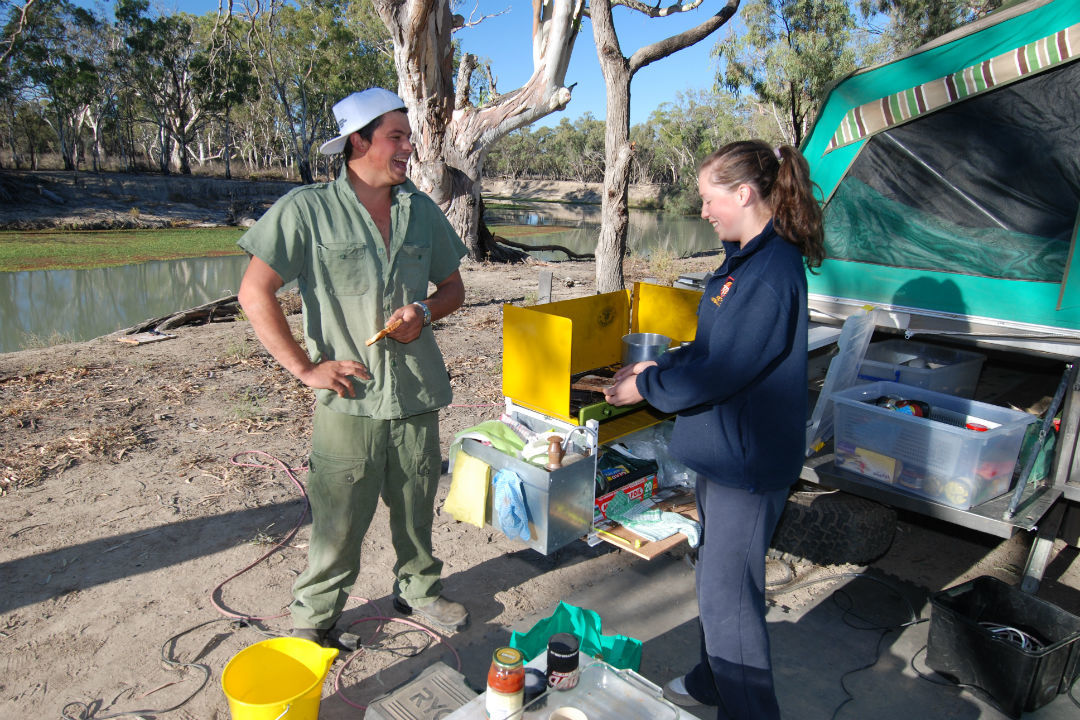
Do I need a four-wheel-drive to visit the park?
It’s preferred but not essential. There’s plenty of campsites accessible to two-wheel-drive vehicles in dry conditions, however it’s important to keep an eye on the weather forecast as the park roads can become boggy and very slippery when wet.
Also keep in mind that there are some campsites in the Katarapko Creek section (campsites 30a – 39) that are only accessible by four-wheel-drive.
Where’s the best place to canoe or kayak?
There’s some really amazing waterways to discover by canoe or kayak. Katarapko creek and Bulyong Island both have beautiful scenery and lots of peaceful little creeks and backwaters that are great to explore.
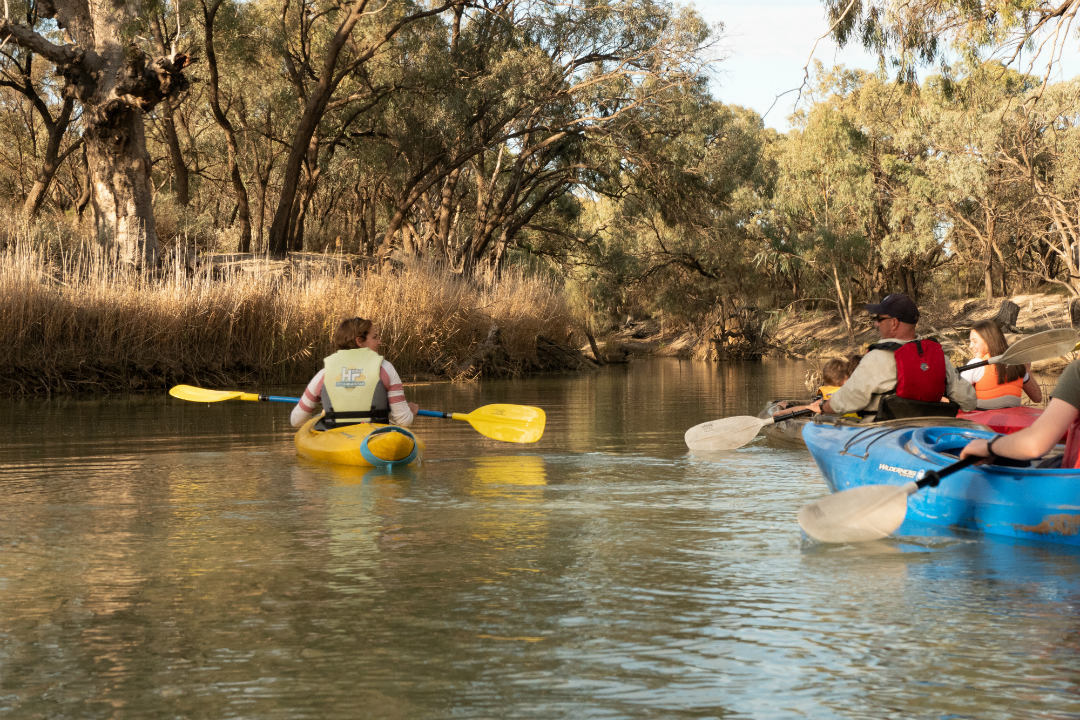
Where’s the best place to go fishing?
You’ll find good fishing spots in most sections of the park. The most common fish species caught is European carp, which is an introduced pest species that is not allowed to be returned to the water alive if caught. If you’re lucky you might be able to catch golden perch (callop), which are tasty to eat.
Katarapko Creek is a great spot to catch yabbies, which you’ll find in big numbers from October to April, especially in years when there are high winter and spring flows.
Top tip: Before you cast in a line or throw in a yabby net, make sure you know what the rules are by downloading the SA Recreation Fishing Guide App on to your smartphone. The app has all the information you need on bag and size limits and fishing rules, and includes full-colour illustrations so you can ID your catch.
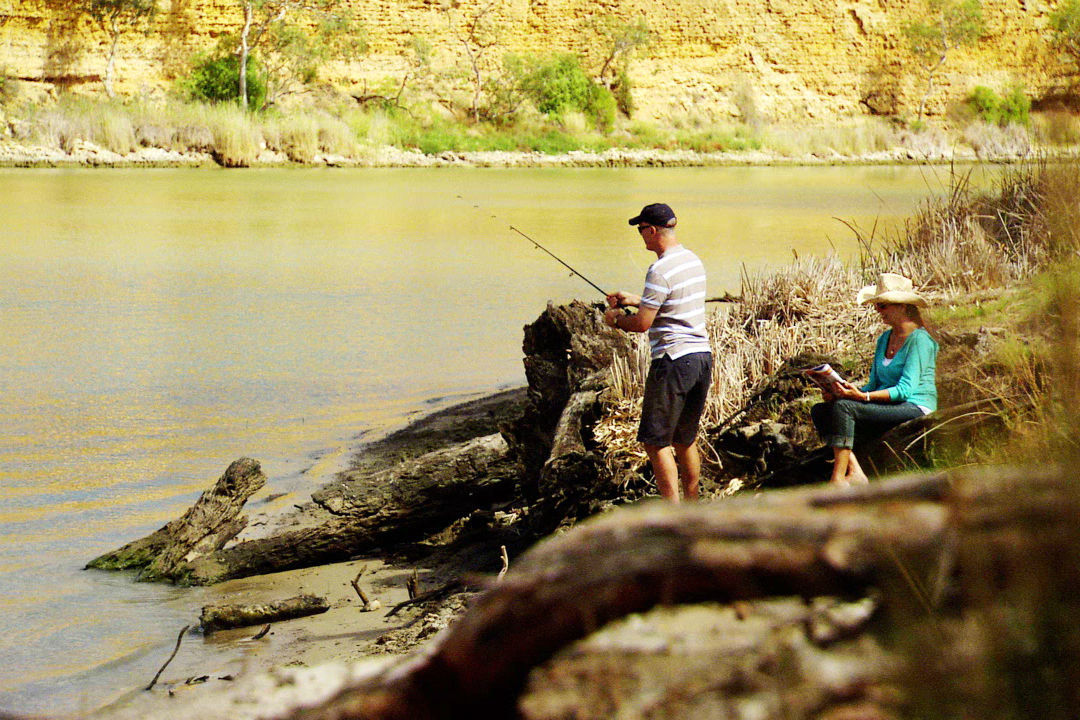
What’s your favourite walking trail in the park?
The Ngak Indau Wetland Trail in the Lock 4 section of the park is great if you’re into birdwatching. The trail begins at the Ngak Indau carpark just off the Lock 4 road and winds its way around the wetland and out to the river.
You’ll often see wetland birds like spoonbills, pelicans and herons, and a variety of duck species as well as kangaroos and lizards. If you take the trail at night, keep an eye on the canopy above where you might spot possums scurrying through the trees. This trail gives you a great appreciation of the different landscapes of the park.
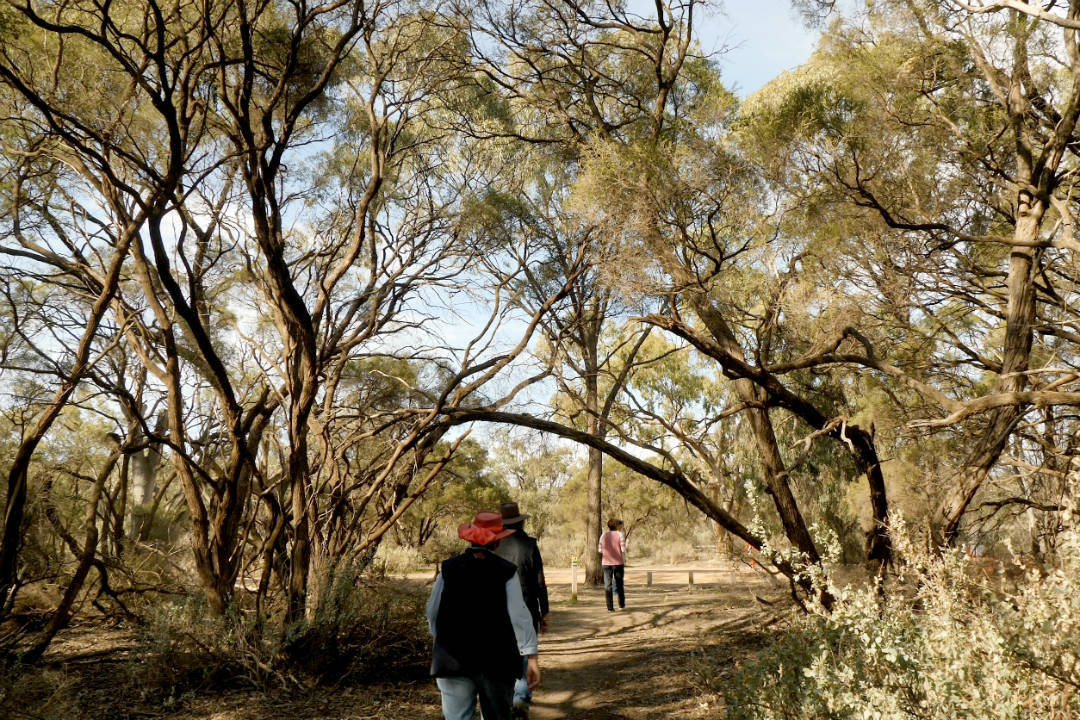
When is the best time to visit the park?
The park is great to visit all year round. My favourite time of the year is during spring when the days start to get brighter and warmer. It’s a good time of the year to see wildflowers and the animals are easier to find.
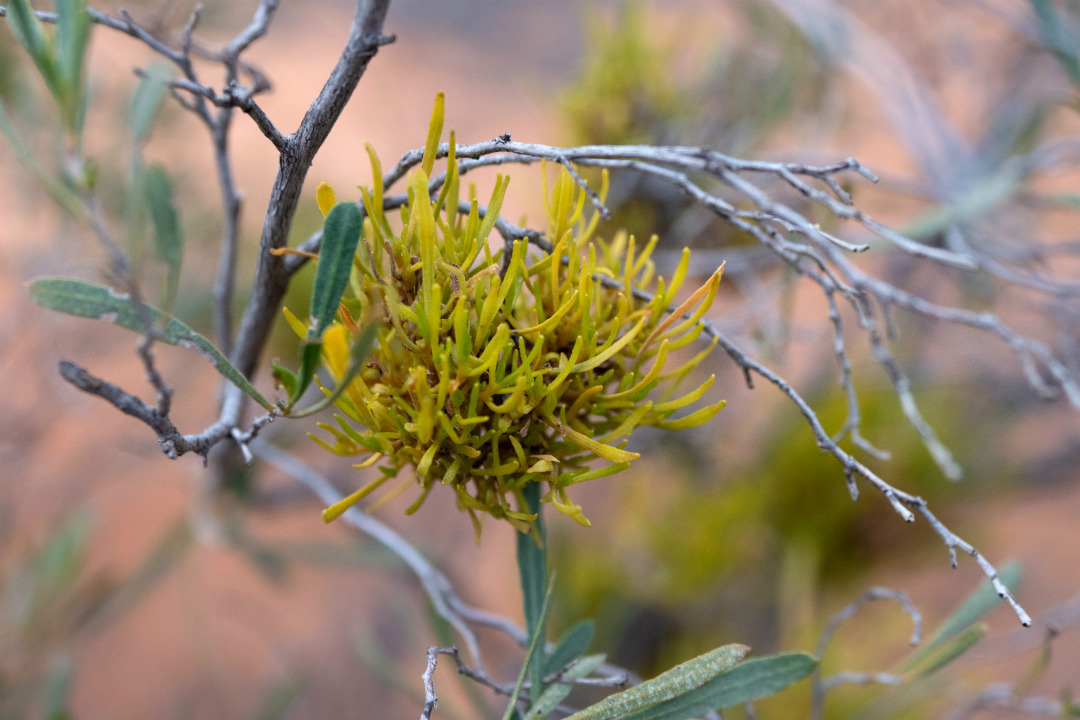
Park of the Month
Throughout September, Murray River National Park is being celebrated as National Parks and Wildlife Service South Australia’s Park of the Month. There’s lots of events and activities to get involved in – check the website for all the details.
Main image: Ranger Glenn Chisholm